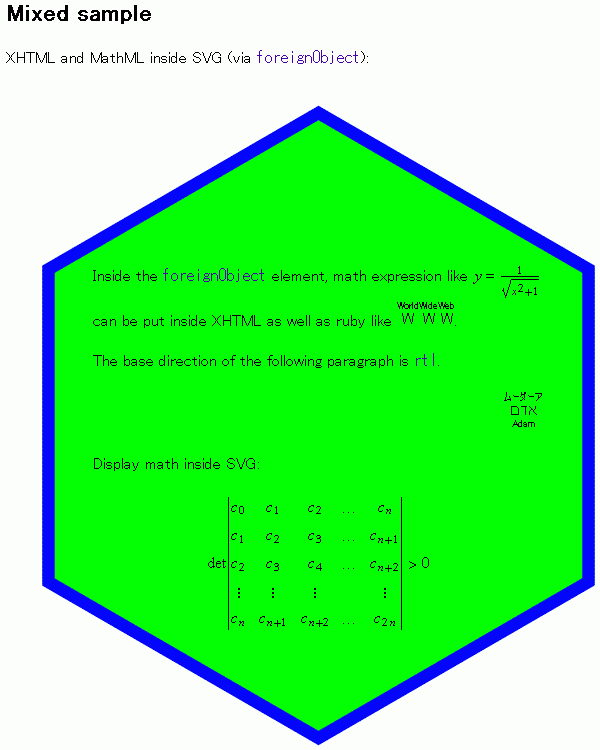What is XHTML Modularization, and Why is it Useful?
Steven Pemberton
Why XHTML Modularization?
The HTML WG was chartered to produce a modularized version of HTML.
Modules help in managing profiles.
It is recursive in the sense that once you have built a language out of
modules, that language may become a module for use in building multi-markup
languages.
It is a method of describing languages with bigger building blocks than
just elements and attributes.
It documents language item dependencies.
Actually independent of XHTML.
What is XHTML Modularization
It is essentially a methodology for building markups.
It consists of:
- The methodology:
- How you describe modules (its elements, attributes, attribute
values, and the effects on other modules)
- How you 'implement' modules in particular schema languages
- Its use
- A number of modules, with their 'implementations'
- Any number of 'drivers' that construct markup languages from the
modules.
Think of it as analogous to a programming-language library in programming,
or maybe as an API, since it is schema language independent.
Modules
A module is a parameterized definition of some markup.
It may:
- define elements, and attributes (a table consists of...)
- define where the content model may be extended (table element
content may be extended here)
- use or require other modules (uses the inline text module)
- add to other content models in other modules (adds the table
element to the block module)
- add attributes to other modules, or add new values to attributes.
Drivers
A driver combines a number of modules into a markup language, providing
the parameter values to modules as necessary
XHTML-Print consists of the following XHTML modules: ...
A markup language itself may also be defined as a module to be used as a
building-block for compound documents. For instance XHTML+SVG+MathML.

Implementations
There are currently three schema languages with defined mappings for
Modularization
Modularization doesn't use any new features, it just describes how you use
these schema languages to define modules. Therefore it works out-of-the-box
with any compliant implementation of any of these schema languages.
In use
For defining languages, such as XHTML 1.1, XHTML Basic, XHTML Print, XHTML+SVG+MathML, xoxo microformat, Jabber, RDDL
For defining editors, such as in Eclipse, oXygen and XFormation.
For use in browsers, such as the validating Sidewinder
browser.
Conclusion
XHTML Modularization in hindsight should have been called XML
Modularization.
It helps manage profiles of languages
It helps in creating language additions
It helps document language dependencies
It helps in combining languages
The spec
